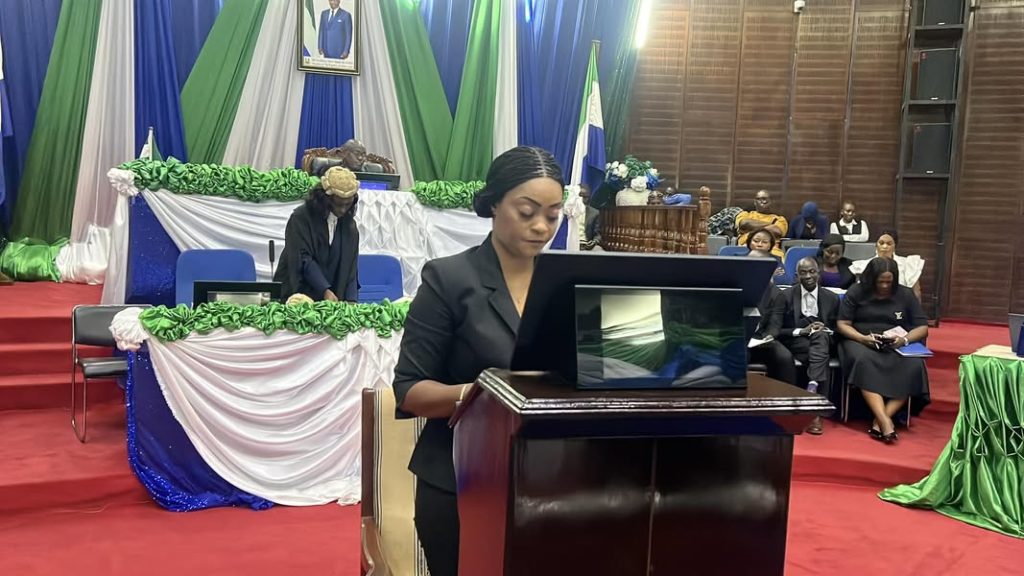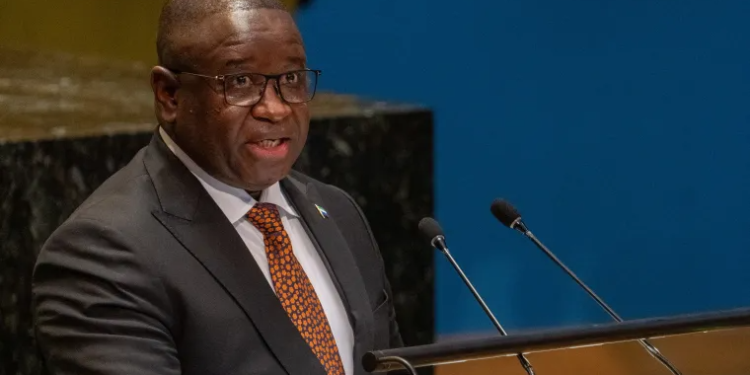By Kemo Cham
The Committee to Protect Journalists (CPJ) has appealed to Sierra Leone’s President Julius Maada Bio not to sign a new law designed to prosecute terrorism activities.
The National Counter Terrorism Act of 2024 was passed by the country’s parliament on March 11, 2025, following months of debate on its provisions.
CPJ, a global media watchdog based in the United States, is worried about the piece of legislation’s potential negative impact on press freedom. In a statement issued on Monday, March 31st, 2025, the organization called on President Julius Maada Bio to ensure any new legislation introduced in the country under his watch isn’t used to target the press.
“President Julius Maada Bio should not assent to Sierra Leone’s terror bill without ensuring that sections hostile to press freedom are amended,” Angela Quintal, CPJ’s Africa regional director based in New York, is quoted.
“Sierra Leone’s lawmakers and executive should safeguard the rights to press freedom and free expression as part of their work to protect their country against the threat of terrorism,” she added.
The Act which was first introduced in 2024, has attracted a lot of attention over its suspected effect on free press, coming after the country repealed decades old criminal libel law that media rights campaigners say held back progress in the industry.
The government and its supporters say the law is necessary to safeguard against terrorism at a time the phenomenon poses a huge global threat.
But observers say the law contains provisions with potentially dangerous implications for not just political opposition, but also independent journalists.
Specific provisions in the law that raises concerns are sections that put journalists at risk of prosecution for their work, noted CPJ. Notable among these is Sections 17(f) and 32(f), both of which criminalize sharing information that the sender “knows” to be false or for which the sender “has reasonable grounds to suspect to be false.” These sections attract punishments of life in prison and 15 years in prison, respectively. Section 4 of the bill allow authorities unfettered powers to “request and obtain information, where it considers it necessary, from any person or authority.”

The Sierra Leone Association of Journalists (SLAJ) in a position paper published after analyzing the bill on March 7, 2025 warned that it “pose a significant threat to press freedom and civic expression.”
“While such laws are crucial for public safety, certain provisions in the Act pose significant risks to freedom of expression, journalistic independence, and civic engagement,” it said, adding: “The vague and broad language used in the Act creates the potential for misuse, which could restrict press freedom, public discourse, and the work of human rights defenders.”
The Africanist Press, a major critic of the Bio Administration, described the piece of legislation as ‘anti-democratic,” as it threatens the fundamental civil rights of citizens and grants sweeping powers to the state to silence opposition.
“This legislation, passed with little public consultation, could criminalize free speech, labeling dissent as terrorism,” it states, noting that provisions in its target journalists, academics, and any individuals or groups the government deems a threat to national security.
Meanwhile, Deputy Speaker of Parliament Ibrahim Tawa Conteh is quoted by CPJ as confirming that the law is expected to be signed by the President.
CPJ also quoted presidential spokesperson Yusuf Keketoma Sandi dismissed the concerns about the bill as “unjustifiable.”






















